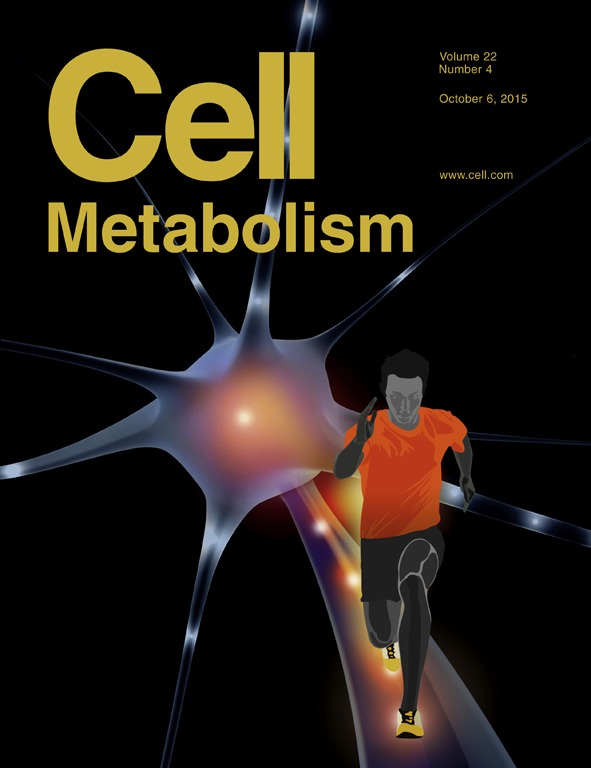Home 2006
Yearly Archives: 2006
Study: Possible Strategy Against Obesity, Diabetes and Infertility
Findings suggest that selectively turning on STAT3 may help prevent diabetes by improving glucose metabolism and help restore fertility as well.
Discovery: Cancer Biology Discovery Could Lead To New Diabetes Treatments
Researchers have found that the acute loss of a protein called menin can cause the proliferation of pancreatic islet cells, which secrete insulin to regulate blood sugar. Discovery has implications for treating Type 1 diabetes.
Obesity Associated With Psychiatric Disorders, Decreased Odds of Substance Abuse
Obesity is associated with a 25 percent increase in the risk of developing mood and anxiety disorders and a 25 percent decrease in likeliness for substance abuse.
Study: Higher Death Rates Associated with Increasing Degrees of Obesity
While obesity has generally been viewed as a single significant health concern, a University of Pittsburgh study suggests that not all obese women share the same health risks.
Studies: New Therapy May Mean Less Dietary Restrictions for Celiac Sufferers
Scientists have discovered what may be a successful non-dietary therapy for celiac sprue, an inherited inflammatory disorder of the small intestine that impacts an estimated 1 in 200 people around the world.
Race May Be Risk Factor For Insulin Resistance
Black women, even if their weight is normal, may be at increased risk for insulin resistance, a condition associated with diabetes, high blood pressure, and heart vessel disease, according to new research by Wake Forest University School of Medicine.
Study: Increased Nighttime Blood Pressure May Be Linked To Higher Risk For Congestive Heart...
Having a relatively high blood pressure level at night may increase the risk for congestive heart failure, according to a study in the June 28 issue of JAMA.
Progress Being Made In Exploring Potential Use Of Stem Cells To Treat Heart Disease
Scientists are making headway in exploring the potential future use of stem cells to treat heart disease, according to a review article in the current issue of Nature.
Research Links Coffee To Lower Diabetes Risk
Researchers at the University of Minnesota School of Public Health have found drinking decaffeinated coffee may lower a person's risk for type 2 diabetes.
Study Reveals High Rate Of Diabetes In Rural India
Populations in rural India may be set for an epidemic of diabetes according to new research conducted by The George Institute for International Health and published today in Diabetes Care.
Joslin Discovers Signs of Residual Islet Cell Function in People with Long-Term Type 1...
Scientists have discovered that a surprisingly high percentage of people with type 1 diabetes (insulin-dependent) who have had the disease for 50 years or longer may still have residual functioning, insulin-producing islet cells and/or islet cell antibodies.
Abnormal Glucose Metabolism May Contribute to Chronic Nerve Disorder
Abnormal glucose metabolism, which occurs when the body has difficulty processing sugar (glucose) into energy, is twice as common among patients with chronic nerve dysfunction of unknown cause than among the general population and may be a risk factor for the condition.
Study: Brain Function Not Impaired By Tight Diabetes Control and Hypoglycemia
The landmark Diabetes Control and Complications Trial showed conclusively that tight blood glucose control significantly reduces the risk of developing complications of diabetes such as eye, kidney and nerve disease. But the DCCT also showed that tight control -- achieved by taking three or more insulin injections daily -- can come at a cost.
Diabetes Research Takes Wing Thanks to Long-Lived Fruit Fly
The creation of an extraordinarily long-lived fruit fly by genetics researchers at the University of Rochester has led scientists down an unexpected new path in the fight against diabetes.
One-Third of Adults With Diabetes Still Don’t Know They Have It
Study notes that type 2 diabetes accounts for up to 95 percent of all diabetes cases and virtually all undiagnosed diabetes cases.
Study: Enzyme Defect Leads To Hyperinsulinism
A recent study in the Journal of Biological Chemistry confirms that mutations in an enzyme called glutamate dehydrogenase can cause congenital hyperinsulinism.





